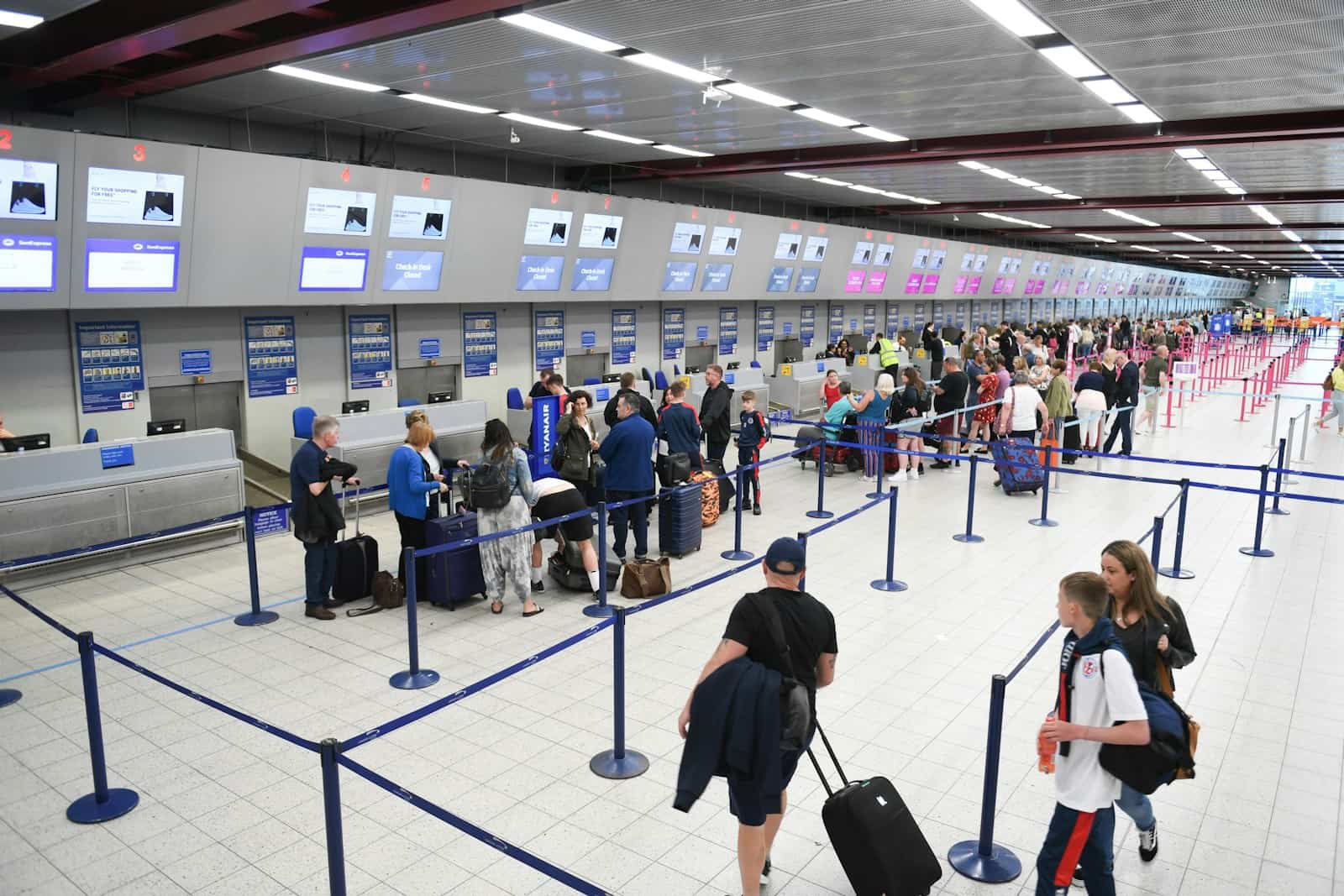
Photo by Phil Mosley on Unsplash
Clear’s Airport Line-Skipping Faces California Scrutiny
April 25, 2024
Clear, a biometric scanning service, lets travelers skip airport security lines for $189 a year. Now, California lawmakers are pushing back against its expansion, arguing it creates an unfair divide between those who can afford it and those who can’t.
A bill, passed 8-4 by the Senate Transportation Committee, aims to halt Clear’s growth in California airports. For the bill to become law, it needs approval from the full California Senate, the Assembly, and Governor Gavin Newsom.
Clear operates in airports, sports venues, and concerts, offering members fast-track entry using biometric data like face scans or fingerprints. Once verified, members skip the TSA queue with a Clear employee.
This system has sparked frustration among travelers who see it as an exclusive privilege. They argue that airport security shouldn’t favor those who pay extra. Clear membership costs $189 annually, while the government-run TSA PreCheck program is $78 for five years.
Senator Josh Newman introduced the bill, emphasizing that the quality of airport security shouldn’t hinge on income. He proposes separate lines for Clear members and general passengers, ensuring no one cuts the line anymore.
The bill also aims to prevent new contracts with private security companies like Clear if they use existing TSA lines and screeners. While it has backing from flight attendant associations and TSA agent representatives, major airlines, California airports, and business groups oppose it.
Clear defended its service, highlighting its job creation and contributions to state airports. However, a legislative analysis suggests airports might lose revenue from Clear, which they could offset by increasing fees elsewhere.
Moreover, securing dedicated TSA lines requires federal approval, which might be challenging. Still, the bill could push Clear to lobby for more TSA funding, benefiting everyone.
While Clear offers convenience, it’s also stirring controversy in California. The proposed bill seeks to level the playing field at airports, but its fate remains uncertain.
Recent News
Premium and Healthier Food Options Gain Traction
As consumers become more mindful of their spending, the global sales of cooking ingredients and meals saw a notable increase of 4.4% in 2023, driven by inflation and higher commodity prices, according to Euromonitor International. This trend underscores a shift in consumer behavior towards more economical choices while still showing a preference for premium, healthier, and environmentally sustainable options.
Dairy Manufacturers Inc. Issues Voluntary Recall of Baby Formula
In a significant move, Dairy Manufacturers Inc., a Texas-based company, has initiated a voluntary recall of several baby formula products after they were found to be noncompliant with U.S. Food and Drug Administration (FDA) regulations. The recall encompasses all lot codes of three specific products: Crecelac Infant 0-12, Farmalac 0-12, and Farmalac 0-12 Low Lactose. This announcement was officially published on the FDA’s website on Saturday.
Fitness Equipment to Become $18.4 Billion Market
The global fitness equipment market is projected to reach $18.4 billion by 2033, growing at a CAGR of 3.02% from 2024 to 2033, according to Allied Market Research. Key drivers include the integration of Internet of Things (IoT) technology in fitness devices and the rise of corporate wellness programs. IoT-enabled equipment captures workout metrics in real time, enhancing user engagement and offering personalized insights. Corporate wellness initiatives promote physical activity in the workplace, increasing demand for fitness equipment in corporate gyms.
Walmart Ends Partnership with Capitol One
Walmart has officially ended its consumer credit card agreement with Capital One, marking a significant shift in the retail giant’s financial partnerships. This decision follows a series of disputes over customer service issues that culminated in a legal battle and a federal judge’s ruling.

